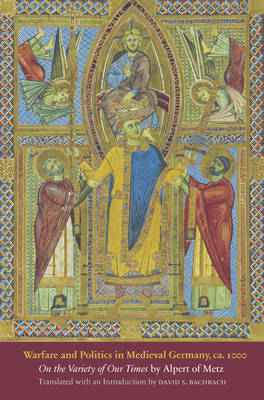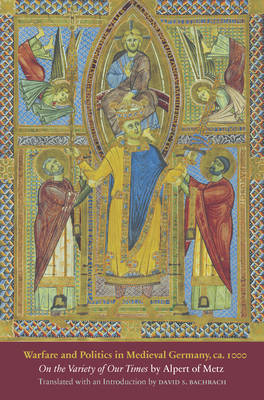
- Afhalen na 1 uur in een winkel met voorraad
- Gratis thuislevering in België vanaf € 30
- Ruim aanbod met 7 miljoen producten
- Afhalen na 1 uur in een winkel met voorraad
- Gratis thuislevering in België vanaf € 30
- Ruim aanbod met 7 miljoen producten
Zoeken
€ 32,45
+ 64 punten
Omschrijving
The De diversitate temporum, written in the early eleventh century by Alpert of Metz, is one of the indispensable contemporary accounts for our understanding of the history of the Low Countries at the turn of the first millennium. With a keen eye for detail, Alpert offers insightful anecdotes about people from all walks of life, while at the same time providing a regional perspective on the important political, social, economic, and military affairs of the period. Alpert gained a connection with Burchard of Worms, dedicating De diversitate to him; this translation includes both Alpert's introductory letter to Burchard and Burchard's response to Alpert. In addition to its significance for the history of the Low Countries, Alpert's work provides considerable insight into the organization of the German kingdom at a point of transition that was marked by the end of the Ottonian dynasty with the death of Henry II in 1024. This translation is based on the 1980 edition by Hans van Rij.
Specificaties
Betrokkenen
- Auteur(s):
- Vertaler(s):
- Uitgeverij:
Inhoud
- Aantal bladzijden:
- 134
- Taal:
- Engels
- Reeks:
- Reeksnummer:
- nr. 52
Eigenschappen
- Productcode (EAN):
- 9780888443021
- Verschijningsdatum:
- 1/09/2012
- Uitvoering:
- Paperback
- Formaat:
- Trade paperback (VS)
- Afmetingen:
- 137 mm x 211 mm
- Gewicht:
- 45 g

Alleen bij Standaard Boekhandel
+ 64 punten op je klantenkaart van Standaard Boekhandel
Beoordelingen
We publiceren alleen reviews die voldoen aan de voorwaarden voor reviews. Bekijk onze voorwaarden voor reviews.











